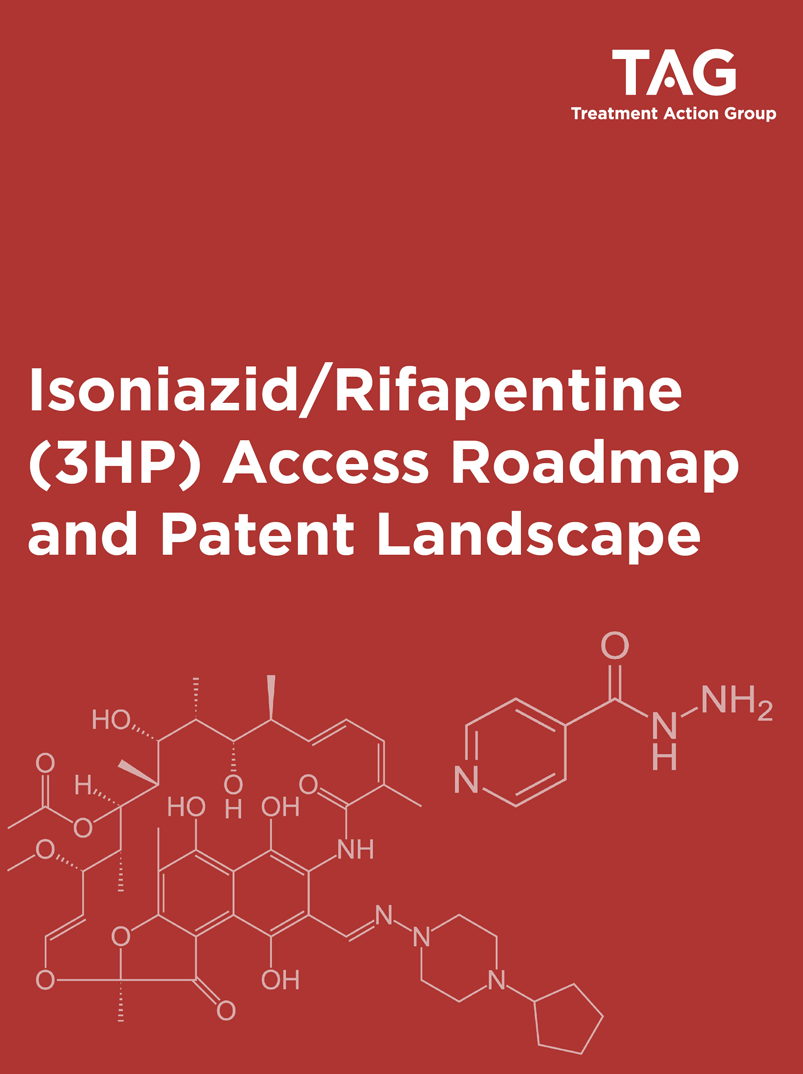January 2022 Update: No Patents on Prevention! The ARK Foundation of Nagaland, India has produced a community guidebook intended to help grassroots activists understand how pharmaceutical corporations’ patenting practices impede access to crucial medicines such as rifapentine and isoniazid used in preventive treatment for TB. The guide describes how communities can fight to bust patent protections that keep drugs out of reach, telling the story of how activists in India, Thailand, France and the United States successfully organized to block patent applications on two formulations of rifapentine-isoniazid and ultimately forced Sanofi to pledge to drop pending patents on similar treatment combinations around the world. The No Patents on Prevention! guidebook was published by the Ark Foundation with support from Treatment Action Group and the Unitaid-funded IMPAACT4TB project.
Our publication, Isoniazid/Rifapentine (3HP) Access Roadmap and Patent Landscape, provides a landscape of patent applications filed by the French pharmaceutical company Sanofi on combinations of two essential medicines used to prevent tuberculosis (TB): isoniazid and rifapentine. Together, isoniazid and rifapentine form the 3HP regimen, which is quickly becoming the global standard of care for preventing TB.
Starting in 2014, Sanofi filed for patents on adult and pediatric fixed-dose combinations (FDC) of 3HP in 68 countries. If granted, these patents could give Sanofi a monopoly on these 3HP FDC formulations until 2034. By limiting generic competition, this monopoly would undermine efforts to ensure that everyone at risk of TB can access the highest available standard of preventive therapy.
The Roadmap provides a detailed development history of each drug to show why isoniazid and rifapentine are global public goods that should remain in the public domain rather than fall under monopoly control. From a legal standpoint, the Roadmap illustrates why Sanofi’s patent claims do not fulfill basic patentability criteria. This analysis is intended to inform national patent examiners evaluating the merits of Sanofi’s patent applications, and to support civil society organizations interested in challenging Sanofi’s attempted monopoly through either pre- or post-grant patent oppositions.

